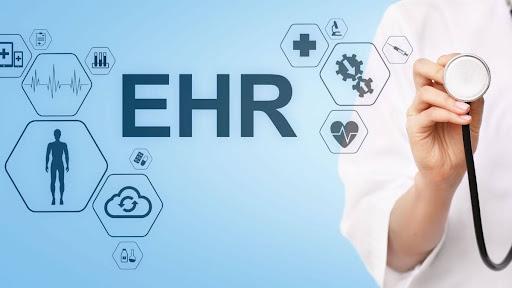In today’s rapidly advancing digital age, healthcare delivery is undergoing a significant transformation. One of the key drivers of this transformation is the growing reliance on technology to improve patient care, accessibility, and outcomes. Telemedicine, a practice that allows healthcare providers to offer remote consultations and services via technology, is at the forefront of this shift.
Central to the effectiveness of telemedicine is the integration of Electronic Health Records (EHR), a digital system that collects and manages patient data. The role of EHR in telemedicine is pivotal, as it enhances efficiency, accuracy, and continuity of care. This article delves into EHR systems’ critical role in telemedicine, exploring their benefits, challenges, and future prospects.
Understanding EHR and Telemedicine
To comprehend the relationship between EHR and telemedicine, it’s essential to understand both concepts independently.
- Electronic Health Records (EHR): EHRs are digital versions of patients’ paper charts. They contain various information, including medical histories, diagnoses, medications, immunization dates, allergies, and lab results. EHR systems are designed to streamline patient information management, improve accuracy, and make data accessible to healthcare providers in real time.
- Telemedicine: Telemedicine refers to using telecommunications technology to diagnose, treat, and consult with patients remotely. It eliminates geographical barriers, making healthcare services more accessible to people in remote areas or those who cannot easily travel to healthcare facilities. Telemedicine has expanded rapidly in recent years, fueled by technological advancements and the growing need for more efficient healthcare delivery systems.
The Role of EHR in Telemedicine
The convergence of EHR and telemedicine has unlocked new possibilities in healthcare. EHR systems are the backbone of telemedicine by ensuring seamless communication, accurate data sharing, and better patient management. Every telemedicine app development company uses EHR in their products. Here’s a look at how EHR plays a pivotal role in telemedicine:
- Improved Continuity of Care EHR systems ensures that healthcare providers can access a patient’s complete medical history, even during remote consultations. This continuity is vital for diagnosing, monitoring, and providing ongoing patient care. With EHR integration, telemedicine appointments can be as informed as in-person visits, as clinicians can review past treatments, medications, and test results in real time.
- Efficient Data Sharing and Collaboration Telemedicine often involves coordination among various healthcare providers, including specialists, primary care physicians, and nurses. EHR systems enable real-time sharing of patient information across different providers, ensuring that everyone involved in a patient’s care is on the same page. This streamlined communication reduces the risk of errors, omissions, or conflicting treatments.
- Enhanced Patient Engagement EHRs allow patients to engage more actively in their healthcare. Many EHR platforms enable patients to access their records, track their progress, and communicate with their providers through secure messaging systems. In telemedicine, patients can quickly share symptoms, receive lab results, or discuss treatment plans without needing to visit a healthcare facility in person.
- Data-Driven Decision Making Telemedicine can benefit significantly from EHR systems’ data analytics capabilities. Healthcare providers can analyze patient data over time to identify trends, make data-driven decisions, and deliver personalized treatment plans. This approach can lead to more proactive healthcare interventions, ultimately improving patient outcomes.
- Streamlined Workflow for Providers EHR integration into telemedicine platforms can optimize healthcare providers’ workflows. Providers can save time during remote consultations by having all patient information available in a unified system, reducing the need for follow-up appointments or duplicated diagnostic tests. This efficiency enhances patient care and helps reduce the burden on healthcare systems.
- Improved Accessibility for Patients Telemedicine offers a lifeline to patients in rural or underserved areas, and EHR systems complement this by ensuring that patient information can travel easily between locations. Whether a patient moves or switches doctors, EHRs can quickly transfer medical records, ensuring continuity of care no matter where a patient is geographically located.
The Future of EHR in Telemedicine
The role of EHR in telemedicine is expected to grow as healthcare systems continue to evolve. Artificial intelligence (AI) and machine learning advancements could allow EHR systems to offer predictive insights into patient care, enabling even more personalized telemedicine experiences. Further standardization of EHR systems and improved interoperability could eliminate many challenges, creating a more seamless and efficient healthcare system.
Government policies and initiatives promoting digital healthcare, especially after the COVID-19 pandemic, will likely continue encouraging the adoption of integrated EHR and telemedicine platforms. This integration will empower healthcare providers to deliver high-quality, accessible care to a broader patient base, making telemedicine a central component of the future healthcare landscape.
The Bottom Line
Integrating Electronic Health Records (EHR) into telemedicine represents a critical advancement in modern healthcare. EHR systems have revolutionized how remote healthcare is delivered by providing real-time access to patient data, improving continuity of care, and enhancing patient-provider communication.
Despite challenges related to interoperability, security, and costs, the role of EHR in telemedicine is expected to expand, offering vast potential to improve healthcare accessibility and outcomes for patients around the world. As the healthcare industry continues to embrace technology, the synergy between EHR and telemedicine will become an indispensable tool in shaping the future of medical care.













































